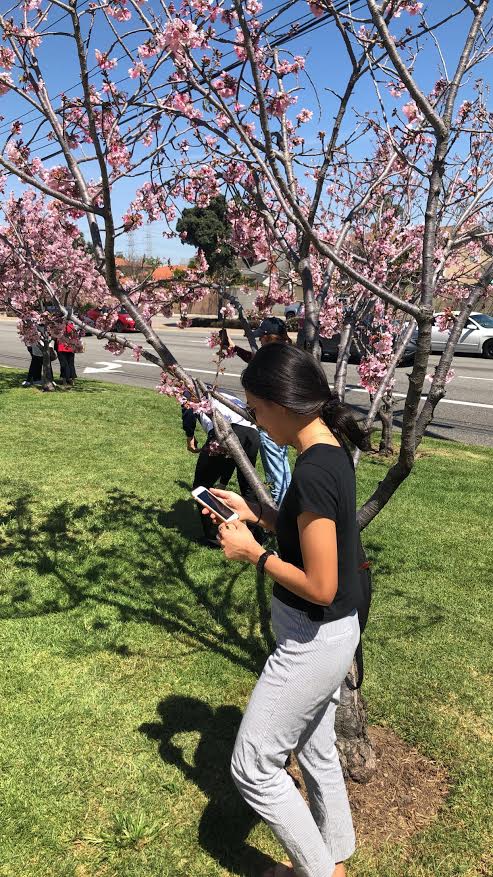Shohei Ohtani, one of Major League Baseball’s exciting new players, has created buzz all around the league with his play on the field so far. A humble Japanese baseball player who has caused a fan frenzy among the Japanese American community here in the states. Many Japanese Americans are filled with pride watching Ohtani succeed as a pitcher and designated hitter for the Los Angeles Angels. If he continues at a high level, Ohtani could have a greater impact on how Japanese baseball, and in some ways Japan itself, is perceived than even pitcher Hideo Nomo did during his time with the Los Angeles Dodgers in the mid-90s.
People can’t stop talking about him. Ohtani is not the first Japanese baseball player to come to the states and cause buzz with their on the field play. Nomo, Ichiro (Suzuki), (Hideki) Matsui all got a lot of attention. (Daisuke) Matsuzaka too. But, Ohtani may be the most hyped and talked about Japanese player of them all. As far as respect as a player, the respect that Americans will give to a Japanese player, it certainly looks like Ohtani will be the most respected when all is said and done.
Ichiro has over 3,000 hits and combined hit record if you count Japan, but he’s good at hitting ground balls to second base and running them out. This is something different. This is an entirely new category. What else can you say but Babe Ruth?
Baseball may be the American pastime, but Japan has taken it and shaped it in its own image. When NPB was viewed from afar as little more than a minor league, Nomo, Ichiro and the rest proved that was a myth.
This is the same with Ohtani, who was met in Spring Training with doubters who said his high level of play in the NPB couldn’t translate to the MLB. But those doubters were quickly silenced once the season started. Born, bred and molded in Japan, Ohtani has the potential to change the way Japanese ballplayers are regarded in terms of their own skill and the skill of the players they compete against before heading to MLB.
Ohtani’s success represents something bigger than just the game of baseball. He is playing for the respect of Japan.
Shohei Ohtani, one of Major League Baseball’s exciting new players, has created buzz all around the league with his play on the field so far. A humble Japanese baseball player who has caused a fan frenzy among the Japanese American community here in the states. Many Japanese Americans are filled with pride watching Ohtani succeed as a pitcher and designated hitter for the Los Angeles Angels. If he continues at a high level, Ohtani could have a greater impact on how Japanese baseball, and in some ways Japan itself, is perceived than even pitcher Hideo Nomo did during his time with the Los Angeles Dodgers in the mid-90s.
People can’t stop talking about him. Ohtani is not the first Japanese baseball player to come to the states and cause buzz with their on the field play. Nomo, Ichiro (Suzuki), (Hideki) Matsui all got a lot of attention. (Daisuke) Matsuzaka too. But, Ohtani may be the most hyped and talked about Japanese player of them all. As far as respect as a player, the respect that Americans will give to a Japanese player, it certainly looks like Ohtani will be the most respected when all is said and done.
Ichiro has over 3,000 hits and combined hit record if you count Japan, but he’s good at hitting ground balls to second base and running them out. This is something different. This is an entirely new category. What else can you say but Babe Ruth?
Baseball may be the American pastime, but Japan has taken it and shaped it in its own image. When NPB was viewed from afar as little more than a minor league, Nomo, Ichiro and the rest proved that was a myth.
This is the same with Ohtani, who was met in Spring Training with doubters who said his high level of play in the NPB couldn’t translate to the MLB. But those doubters were quickly silenced once the season started. Born, bred and molded in Japan, Ohtani has the potential to change the way Japanese ballplayers are regarded in terms of their own skill and the skill of the players they compete against before heading to MLB.
Ohtani’s success represents something bigger than just the game of baseball. He is playing for the respect of Japan.


 RSS Feed
RSS Feed
